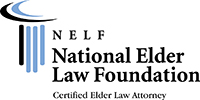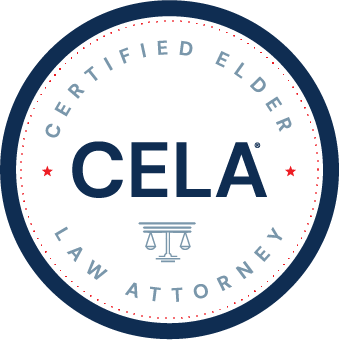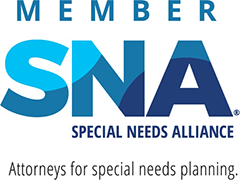Firm News
Personal Injury Settlements -Medicare Secondary Payer Statute (MSP)
On June 12, 2013, the United States District Court for the District of New Jersey published Taransky v. Sebelius (No. 12-4437, Slip Op. D. NJ. June 13, 2013) finding that the court lacked subject matter jurisdiction because Ms. Taransky failed to exhaust her options for administrative appeal. However, the court found that despite state trial court’s order on a stipulation allocating all settlement recovery to non-medical expenses, Ms. Taransky received payment from a “primary plan” responsible for payment of her medical expenses that had been covered by Medicare. As a result, Ms. Taransky was required to reimburse Medicare under the MSP.
Ms. Taransky was injured in a fall at a shopping center. On October 26, 2009, Ms. Taransky settled her claims for a lump-sum payment of $90,000.00. After settlement, Ms. Taransky’s attorneys filed a “Motion to Adjudicate Allocation of Settlement Proceeds” in the Superior Court of New Jersey, including a proposed order stating that no portion of the recovery was attributable to medical expenses or other benefits compensated by way of a collateral source. In addition to the proposed order, Plaintiff’s counsel filed a certification, in which he stated that “New Jersey law does not permit a plaintiff’s tort recovery of losses (such as medical expenses) that have been compensated by way of collateral sources of benefits, such losses were not considered in settlement negotiations between the parties to this action and are not part of any recovery that may be obtained.” The state court entered the proposed order on November 20, 2009.
On December 8, 2009, the Medicare Secondary Payer Recovery Contractor sent Ms. Taransky a letter requesting that she reimburse Medicare $10,121.15. Ms. Taransky appealed and made the following arguments before the ALJ: (1) under the Medicare Secondary Payer Manual, Chapter 7, § 50.4.4, “the only situation in which Medicare recognizes allocations of liability payments to non-medical losses is when payment is based on a court order on the merits of the case” and that Medicare must defer to the state court’s allocation order because through its order, “the state court issued a decision on the merits of the case in which it allocated no part of the settlement to medical expenses or other benefits by way of a collateral source”; (2) the New Jersey Collateral Source Statute (“NJCSS”) “prohibits a plaintiff’s tort recovery from including any insured loss, apart from worker’s compensation and life insurance benefits” and as such, the Medicare payments were a collateral source and a New Jersey court would be legally prohibited from including them in any verdict; (3) Medicare was obligated to abide by the state court’s order; and (4) “reimbursement would be inequitable and that it would be unfair for Medicare to be ‘made whole’ for its expenditures from the already inadequate compensation received by the Beneficiary.”
The ALJ found that the state court’s order was not “on the merits” of the case; instead, it was issued under a stipulation by the parties and Medicare was therefore not required to defer to the state court’s order. Further, the ALJ determined that the NJCSS did not apply to conditional Medicare benefits.
Ms. Taransky appealed the ALJ’s determination to the Medicare Appeals Council (“MAC”), which rendered its decision on May 11, 2010, finding no error in the ALJ’s decision. The MAC adopted the ALJ’s decision and found that the settlement included compensation for medical expenses already paid by Medicare.
On July 16, 2012, Ms. Taransky filed the instant case, through which she asserted claims for declaratory judgment and injunctive relief, violation of due process rights under the Fifth and Fourteenth Amendments to the Constitution, and unjust enrichment. Ms. Taransky also sought relief on behalf of a class of all other persons similarly situated who had obtained tort recoveries subject to New Jersey law and were subjected to improper claims for reimbursement of Medicare out of their personal injury recoveries.
Ms. Taransky argued for the first time that under Ahlborn, entitlement to reimbursement should be “limited to the amount actually recovered by a beneficiary in respect of medical expense, or, where no such allocation is made, a proportionate share of the recovery.” Defendants contended that this argument was not properly before the court because Ms. Taransky failed to administratively exhaust the claim because she did not raise her Ahlborn proportionality claim during the administrative process.
The court also found that the MAC and ALJ properly addressed the issue of the state allocation order. The MAC adopted the ALJ’s decision in its entirety, including the ALJ’s conclusions with regard to the state court’s allocation order. In rendering its decision, the ALJ addressed Ms. Taransky’s attempt to apply the Medicare Secondary Payer Manual, Chapter 7, § 50.4.4 to her case, as she did again in arguing the instant case. The section provides that “[t]he only situation in which Medicare recognizes allocations of liability payments to nonmedical losses is when payment is based on a court order on the merits of the case.” Ms. Taransky asserted that through an Order to Adjudicate the Allocation of Settlement Proceeds, the state court issued a decision on the merits of the case in which it allocated no part of the settlement to medical expenses or other benefits compensated by the way of a collateral source and Medicare must therefore recognize this allocation.
The court also agreed with the ALJ’s decision that the state court’s order, entered upon a stipulation of the parties, was not a “court order on the merits of the case” as contemplated under Chapter 7, § 50.4.4 of the Medicare Secondary Payer Manual. Accordingly, this conclusion, coupled with the MAC’s factual determination that the settlement included compensation for medical expenses already paid by Medicare with conditional payments lead the court to affirm the MAC’s decision.












